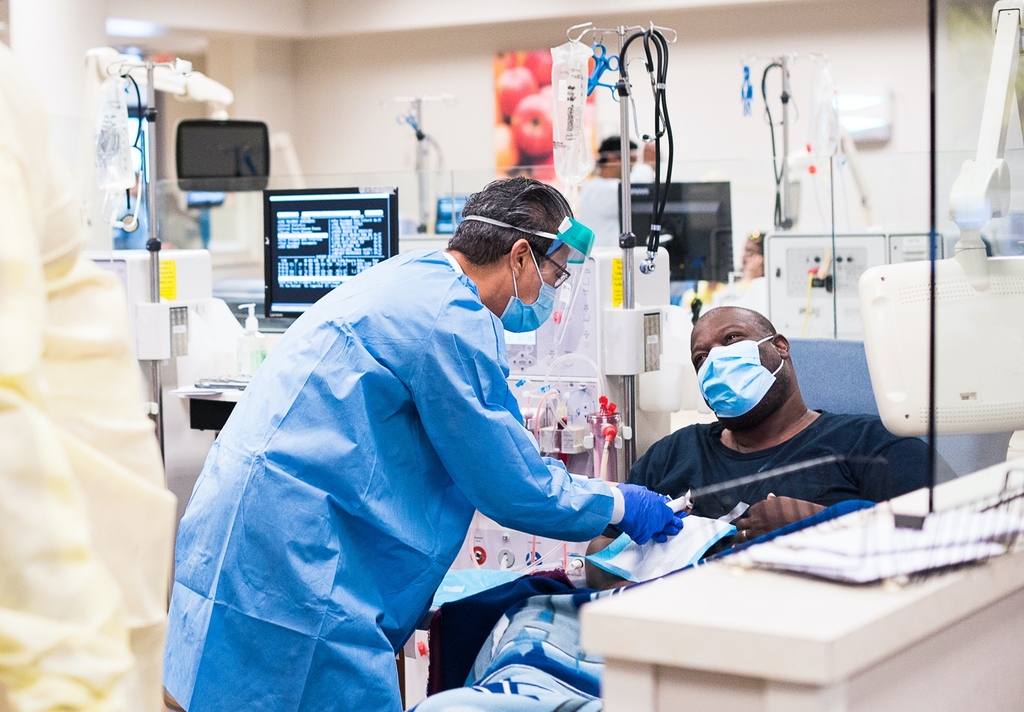Dialysis Technician
A Dialysis Technician course is a specialized training program designed to educate individuals on the principles, procedures, and skills required to work in the field of dialysis care. Dialysis is a medical procedure that helps remove waste products and excess fluids from the blood when the kidneys are unable to perform this function adequately. Dialysis Technicians play a crucial role in supporting patients undergoing dialysis treatment, ensuring the proper functioning of dialysis equipment, and maintaining a safe and sterile environment.
1. Introduction to Dialysis:
The course typically begins with an introduction to the basics of dialysis. Students learn about the functions of the kidneys, the importance of dialysis in managing kidney failure, and the different types of dialysis treatments available, such as hemodialysis and peritoneal dialysis. Understanding the anatomy and physiology of the renal system is fundamental to comprehend the necessity of dialysis.
2. Patient Care:
Dialysis Technicians are responsible for providing direct care to patients undergoing dialysis. This includes understanding patient needs, monitoring vital signs, and recognizing signs of complications. Students learn about infection control measures, patient confidentiality, and effective communication skills to establish a rapport with patients and create a comfortable treatment environment.
3. Dialysis Equipment and Technology:
A significant portion of the course is dedicated to understanding the equipment used in dialysis procedures. Students learn about the different components of hemodialysis machines, how to set up and operate them, and troubleshooting common issues. This knowledge is crucial to ensure the proper functioning of equipment during dialysis sessions.
4. Water Treatment:
The quality of water used in dialysis is of utmost importance to prevent complications and ensure patient safety. Dialysis Technicians learn about water treatment systems, the importance of maintaining water purity, and the procedures for routine testing and monitoring. This knowledge is critical to prevent bacterial contamination and other complications related to water quality.
5. Infection Control and Sterilization:
Maintaining a sterile environment is vital in dialysis units to prevent infections. Dialysis Technicians are trained in infection control practices, including the proper use of personal protective equipment (PPE), sterilization techniques, and adherence to strict hygiene protocols. This knowledge helps safeguard both patients and healthcare providers from the risk of infections.

6. Anatomy and Physiology:
A comprehensive understanding of human anatomy and physiology is essential for Dialysis Technicians. This includes studying the structure and function of the kidneys, the circulatory system, and other related organs. A solid foundation in anatomy and physiology enables technicians to comprehend the physiological changes associated with kidney failure and the impact of dialysis on the body.
7. Medical Terminology:
Dialysis Technicians work closely with healthcare professionals, and understanding medical terminology is crucial for effective communication. The course includes the study of medical terms, abbreviations, and jargon commonly used in the field of nephrology and dialysis. This knowledge helps technicians communicate accurately and efficiently with other members of the healthcare team.
8. Patient Education:
Dialysis Technicians are often involved in educating patients about their treatment, dietary restrictions, and lifestyle modifications. The course includes training on effective patient education techniques, providing information on the importance of medication adherence, dietary restrictions, and lifestyle changes to support overall kidney health.
9. Professionalism and Ethics:
Ethical considerations and professionalism are integral aspects of healthcare. Dialysis Technicians learn about ethical principles, patient confidentiality, and the importance of maintaining a high standard of professionalism in their interactions with patients and colleagues. This includes respecting cultural diversity and promoting patient advocacy.
10. Clinical Practicum:
Many Dialysis Technician courses incorporate a clinical practicum component, allowing students to gain hands-on experience in a real-world dialysis setting. Under the supervision of experienced professionals, students apply theoretical knowledge, develop practical skills, and become familiar with the day-to-day responsibilities of a Dialysis Technician. This experiential learning is invaluable for building confidence and competence in the field.
11. Certification and Licensure:
Upon completing the Dialysis Technician course, individuals may be eligible to take a certification exam offered by relevant certifying bodies. Achieving certification demonstrates competency in the field and may be a requirement for employment. Additionally, some jurisdictions may require licensure to practice as a Dialysis Technician, and the course prepares students for these regulatory requirements.
12. Continuing Education:
The field of dialysis is dynamic, with advancements in technology and treatment modalities. A good Dialysis Technician course emphasizes the importance of continuing education. Technicians are encouraged to stay updated on the latest developments, attend workshops, and pursue additional certifications to enhance their knowledge and skills throughout their careers.
Conclusion:
In summary, a Dialysis Technician course is a comprehensive program that equips individuals with the knowledge and skills needed to provide quality care to patients undergoing dialysis. From understanding the intricacies of dialysis procedures to mastering the operation of sophisticated equipment and ensuring infection control, Dialysis Technicians play a vital role in the healthcare system. The course not only provides a solid foundation in technical aspects but also emphasizes the importance of patient care, ethical considerations, and ongoing professional development. As the demand for dialysis services continues to grow, well-trained and competent Dialysis Technicians are essential to ensuring the well-being of individuals with kidney failure.